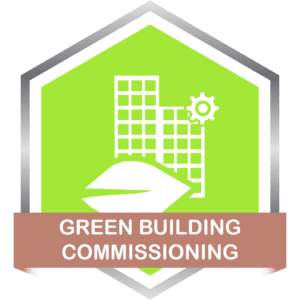About Course
Commissioning the Building Energy Model Training 
Building commissioning and energy modeling are two processes that are complementary to one another and work together to optimize the performance of buildings and achieve savings in energy consumption.
Building owners can achieve even greater energy savings and ensure that their building is operating at peak performance by using energy models to identify potential opportunities for energy savings, validate the performance of building systems, and evaluate the performance of the building after the commissioning process has been completed. These three steps make up the energy modeling process.
Optimising heating, ventilation, and air conditioning (HVAC) systems, installing energy-efficient lighting, and evaluating the performance of solar panels are just some specific examples of how building commissioning works best with energy models. As a result of this, building owners should think about including building commissioning and energy modeling in any project involving the construction or renovation of their properties.
Building commissioning, on the other hand, refers to the process of checking to see that all of the building’s systems have been correctly installed and are operating as designed. A visit to the location is frequently required for commissioning.
When these two processes are combined, building owners have the opportunity to realize even greater reductions in their building’s energy consumption and to ensure that their structure is performing at its absolute best. In this class, we will investigate the most effective ways to use energy models for building commissioning, complete with numerous concrete examples.
The Commissioning the Building Energy Model training was prepared by an experienced commissioning specialist—Krishnaji Pawar, who specialises in developing sustainable design strategies for Green Building Certification Systems (LEED, GSAS, etc.), Energy & Water Conservation, Commissioning, Environmental Impact Assessment, and Environmental Management Systems.
Learning Objectives
- Commissioning the Building Energy Model
- Building Energy Models: Theoretical or Predicting the Actual?
- Why do we have a Building Energy Model?
- Why Commission the Energy Model?
- Using Energy Models for Building Commissioning
- Different applications of Building-level models for Commissioning
- Summary and resources
Although the Commissioning the Building Energy Model is primarily intended for building owners and developers, architects, engineers, and green building consultants may also benefit from taking it. The course’s primary focus is on the advantages of building commissioning and Building Energy modeling. Commissioning and energy modeling are two processes that are complementary to one another and work together to optimize the performance of the building and achieve savings in energy consumption.
Energy modeling and building commissioning work together to improve building performance and save energy. Building owners can maximize energy savings and building performance by using energy models to identify energy savings opportunities, validate building system performance, and evaluate building performance after commissioning.
Energy models help building commissioning optimize HVAC systems, install energy-efficient lighting, and evaluate solar panel performance. Building commissioning and energy modeling should be part of any construction or renovation project.
Other Related courses
Certified Commissioning Professional – CCP Exam Question Bank
Each simulation exam will explain correct and incorrect answers and help students focus on the commissioning process. Our simulation tests get harder from easy to medium to hard to expert.
Advantages of our simulation exams:
- Before the final CCP exam, you will test your knowledge.
- Exam-like examinations
- Five mock exams with over 600 questions range from easy to hard to expert.
- Understand the reasoning behind each question and answer and the related knowledge area to restudy or revise.
- Our CCP Exam Knowledge Domain simulation exams count towards your studies.
- You’ll learn building commissioning terminology.
- You should pass the exam on your first try.
- The course provider will answer any questions you have.
Even though the 700-question CCP Practice Exam with key terminology flash cards is very helpful on its own, the Certified Commissioning Professional – CCP Exam Question Bank will help building commissioning professionals make a targeted, personalized study plan to help them reach their professional development goals.
Course Content
Section 1: Introduction and Course Outline
-
12:15
-
L1_18CXSiC_CXA & BEM Handout



